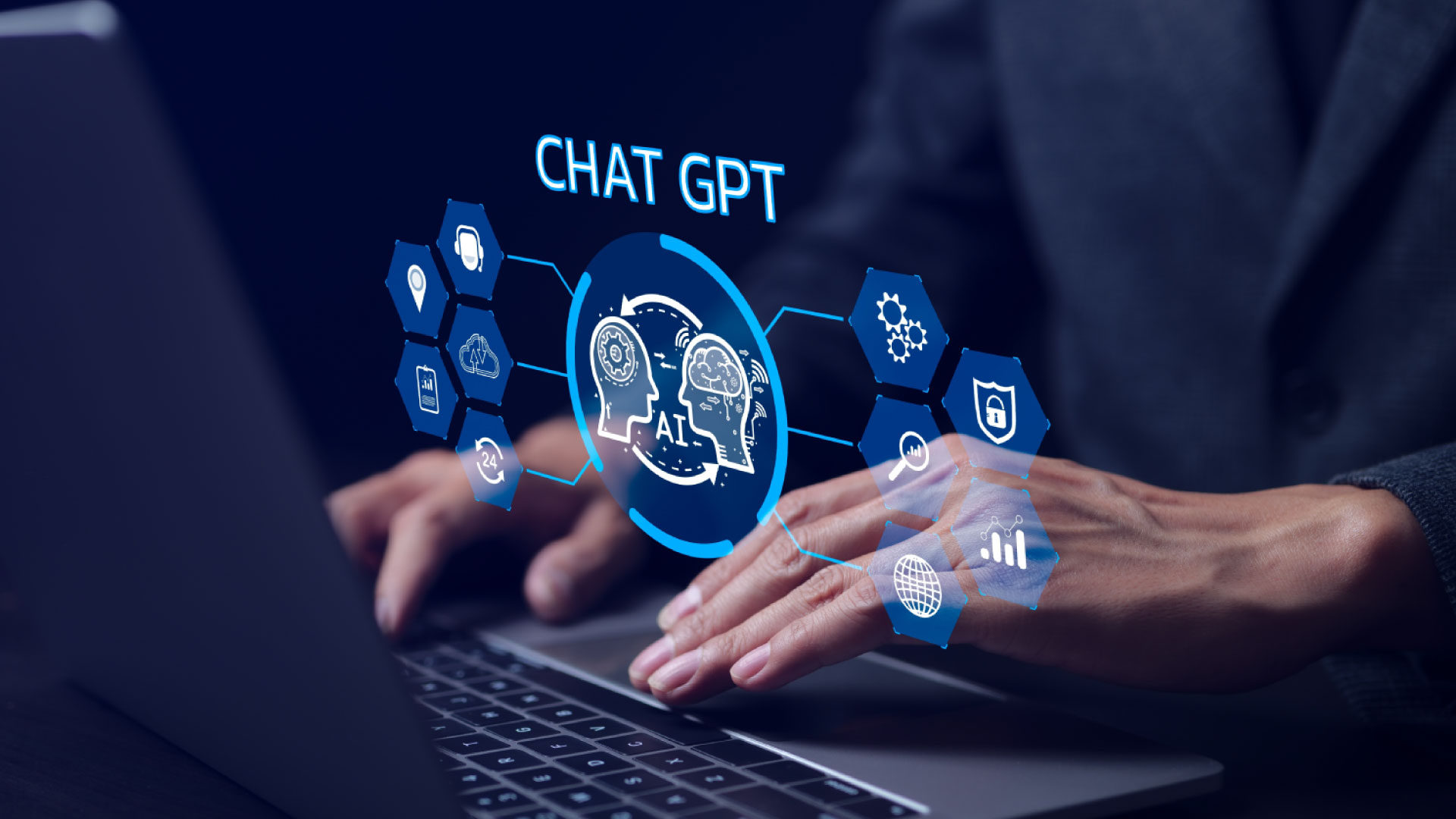Open AI’s ChatGPT is among the most innovative and influential AI systems ever to impact the retail industry.
While the full effects of ChatGPT and other generative AI technologies are still playing out, its influence on the retail industry is already undeniable. Today, generative AI assists in business-critical decision making that streamlines operations and uncovers new growth opportunities.
Retailers are using generative AI for writing product descriptions, managing inventory, and aiding the buying process. Using natural language processing (NLP), AI-led chatbots answer users’ requests in humanlike interactions that create a personalized shopping experience.
Note: If you’re interested in a more general understanding of how AI makes you a more effective retailer, check out our blog: Top 8 Ways AI Is Changing the SaaS Merchandising Game.
ChatGPT in Retail: The Good ….
Here are eight ways ChatGPT is positively impacting the retail operations landscape. (Of course, ChatGPT has its weaknesses and downsides too; we describe a few of these at the end of the article.)
ChatGPT Drives Retail Market Research with Deeper Data Analytics
ChatGPT has incredible potential to enhance market research. It analyzes buyer data and delivers a better understanding of buyers’ needs, preferences, and behavior. ChatGPT’s retail insights set the stage for an effective marketing strategy.
ChatGPT assists retailers in finding quick answers to critical questions such as:
- What are the most in-demand products or services?
- Which marketing channel is most effective for selling a specific product or service?
- What factors inspire customer loyalty?
- Which demographic sections are most likely to convert?
ChatGPT also conducts surveys and collects customer feedback to better identify customer pain points and their views on product performance.
ChatGPT Supports Retail Marketing and Sales Teams for Better Brand Building
Retail marketing and sales teams use ChatGPT to craft personalized strategies and services that build brand awareness and enhance the bottom line.
ChatGPT is already making a significant contribution in retail by:
- Sending personalized messages to promote products and services
- Assisting sales reps by answering frequently asked questions
- Integrating loyalty programs to help customers track points and claim rewards
- Increasing up-sales and cross-sales conversions
- Automating follow-up and onboarding messages
ChatGPT in Retail Fuels Personalized Recommendations
Because the modern customer rules the market—demanding top product quality and service agility— the only way to satisfy them and stay ahead of your competition is to focus on delivering value.
ChatGPT analyzes retail customer data to create and even deliver hyper-personalized recommendations to prospective buyers. It aligns offers and suggestions with customer shopping history and preferences, helping them find the right product based on specific factors such as brand, size, color, and style.
ChatGPT Enhances Retail Customer Service
You won’t win any market battles unless your post-sales service is lightning fast and spot on. ChatGPT integrates with customer service to provide quick, accurate responses 24/7 in ways such as:
- Generating instant humanlike replies using the power of NLP
- Conversing with your clients like a service rep, giving real-time information about order details, shipping information, return status, estimated delivery, etc.
- Serving a multi-language customer base through its language translation capabilities
ChatGPT Better Engages Retail Customers
Continually engaging customers in a multichannel world is a grueling task. From emails to live chats and social media, ChatGPT tackles all types of retail customer engagement. The bot answers questions in multiple languages, fine-tuning every response to match your brand’s voice and tone. It automates response time and generates hard-hitting emails. Retailers also use it to organize testimonials, enhance landing pages, and extract insights from social media.
ChatGPT Detects Fraud to Prevent Losses, Protect Customers, and Build Trust
The upswing in e-commerce opens a plethora of opportunities for fraudsters as well as retailers. Most current tools to mitigate these frauds—illicit transactions, wardrobing, receipt fraud, and more—are expensive, error-prone, and time-consuming.
ChatGPT analyzes colossal retail data sets quickly. It identifies suspicious purchases, high-value purchases from different cards, and multiple orders from the same address. It learns from previous deceptions, forms patterns, and mitigates risks.
ChatGPT Efficiently Manages Retail Order Exchanges and Returns
ChatGPT walks retail customers step-by-step through the return/exchange process. It provides 24/7, real-time support, enabling your service reps to undertake other complex issues as it replies to frequent return-related queries such as:
- What items are eligible for return/exchange?
- How do I initiate the return process?
- How long does it take for a refund to be credited?
ChatGPT Reduces Retail Costs and Boosts Sales
It is no secret that AI-driven automation produces significant retail savings. It eliminates human errors (which often snowball into costly issues), reduces the cost of staff training and upscaling programs, and more. ChatGPT also makes tailored recommendations to increase your up-sale and cross-sale conversions.
ChatGPT in Retail: The Not So Good ….
However, like any other technology, whether nascent or established, ChatGPT has weaknesses—not all of which have been revealed.
Limited Knowledge and Hallucinations
ChatGPT’s knowledge is limited to its training data; bad or incomplete input will cause problems. Although the technology is improving quickly, ChatGPT still on occasion “hallucinates,” putting out false information and using deeply flawed logic.
Be sure you verify its responses before making critical decisions.
Language Model Limitations
Conversations and Q&A-style customer interactions are ChatGPT’s most prominent retail applications. The bot translates responses, answering users in their chosen language.
However, generative AI has a limited sense of context and if the interactions are too long, it may forget the previous bits.
As noted above, ChatGPT is only as good as its training data set. If, for example, the tool is trained on prejudiced and biased information, its responses will reflect that.
And not being human, it can botch a conversation that involves irony or sarcasm, or specific context and cultural references. It also toils when capturing language nuances. If your customers use slang or idioms, odds are they will get a response that is wide of the mark.
Exercise caution, especially if your customer base extends across multiple regions and languages—the bot does not have an equally comprehensive understanding of all dialects and accents.
Data Privacy and Security Concerns
ChatGPT may store information and thus potentially expose it to others, so you need to shield your (and your customer) data. Overall, you need to be certain your iteration of the technology is absolutely buttoned up. Your customers share personal information—such as banking details, addresses, and contacts—which you must ensure never ends up somewhere it should not.
Take the Next Step
Impact Analytics was named to Fortune’s list of America’s Most Innovative Companies in part because we quickly take advantage of the latest technologies with the most upside potential for our clients!
To learn how we’ve integrated our product suite with generative AI technologies, including Open AI’s GPT models, read our press release:
Impact Analytics enhances its AI-native product portfolio with generative AI technologies.
Please note: Your privacy and security are ensured; we wall off our client data from the generative AI, and we massively test all code for any vulnerability long before it is deployed.





